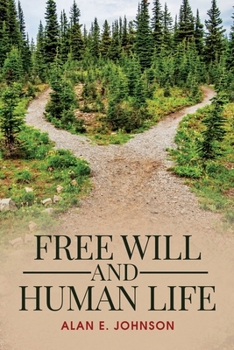Free Will and Human Life
Does free will exist? Does it require an immaterial soul? Is there a scientific basis for it? These are among the many questions addressed in this book. The Introduction defines free will as the independent ability to make conscious decisions that are neither predetermined nor random. Chapter 1 evaluates representative arguments against free will: theological predeterminism (Augustine's later writings, Luther, and Calvin), scientific causal predeterminism (universal natural determinism), ad hoc (genetic or environmental) determinism, and compatibilism/soft determinism (the view that free will and determinism are compatible). Chapter 2 examines representative arguments in favor of free will: Aristotle, modern dualism (Descartes, Kant, and recent Christianity), and contemporary philosophical and scientific perspectives (including evolution/natural selection, neuroscience, quantum physics, and neuroplasticity). Chapter 3 (which also discusses chaos theory, complexity theory, and secular biological teleology) concludes that free will, properly understood, exists and is beneficial to human life.
Format:Paperback
Language:English
ISBN:0970105533
ISBN13:9780970105530
Release Date:July 2021
Publisher:Philosophia Publications
Length:162 Pages
Weight:0.50 lbs.
Dimensions:0.3" x 6.0" x 9.0"
Related Subjects
PhilosophyCustomer Reviews
0 rating





